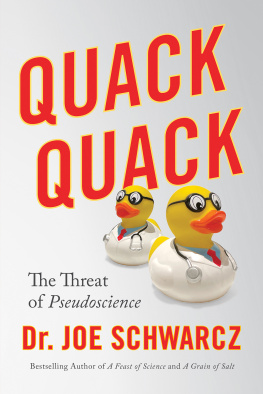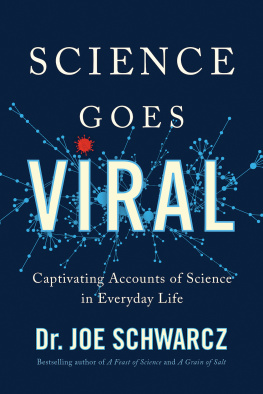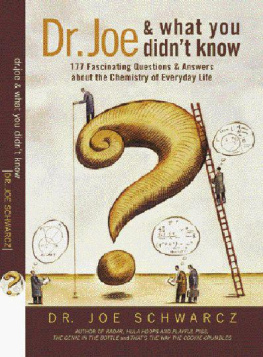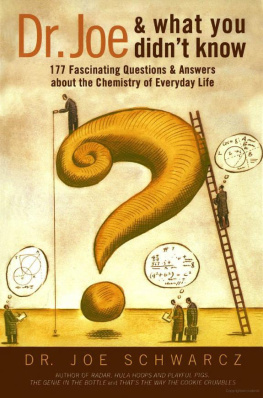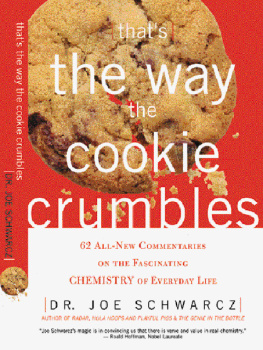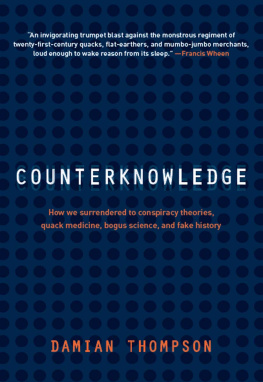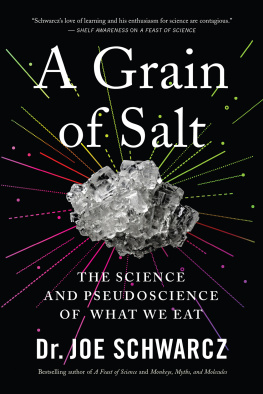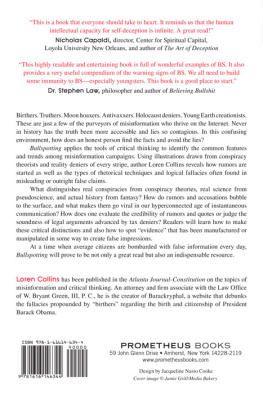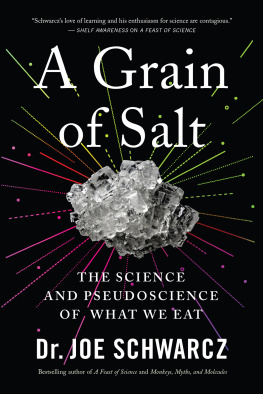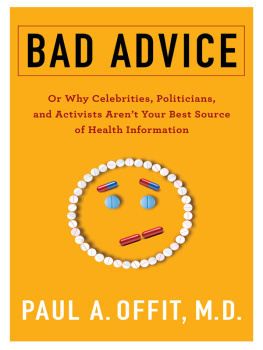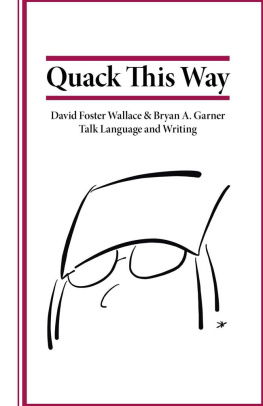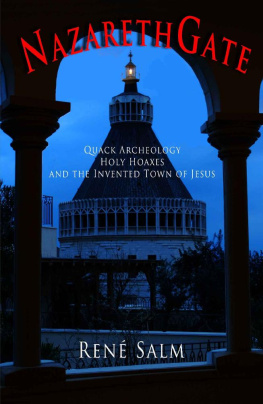Praise for Dr. Joe Schwarcz
Praise for Science Goes Viral
Joe Schwarcz does it again with this fun, fast-paced, and evidence-informed exploration of the hot topics in science weve been bombarded with over the past few years! From the biology of vaccines (including the new mRNA variety) and immune boosting (spoiler: you cant) to the history of epidemiology and toilet paper, Schwarcz gives us the fact-filled low-down. In a world filled with misinformation and twisted science, this is a must-read!
Timothy Caulfield, Canada Research Chair in Health Law and Policy, bestselling author of Is Gwyneth Paltrow Wrong About Everything?
Praise for A Grain of Salt
Schwarczs light touches of humor make the scientific information feel accessible and ensure that its entertaining. With enough facts to soothe anxious, health-conscious individuals as well as some good tidbits to share, this enlightening collection offers every reader something new to learn and marvel over.
Booklist
Praise for A Feast of Science
Huzzah! Dr. Joe does it again! Another masterwork of demarcating non-science from science and more generally nonsense from sense. The world needs his discernment.
Dr. Brian Alters, Professor, Chapman University
Praise for The Fly in the Ointment
Joe Schwarcz has done it again. In fact, he has outdone it. This book is every bit as entertaining, informative, and authoritative as his previous celebrated collections, but contains enriched social ber and 10 percent more attitude per chapter. Whether hes assessing the legacy of Rachel Carson, coping with penile underachievement in alligators, or revealing the curdling secrets of cheese, Schwarcz never fails to fascinate.
Curt Supplee, former science editor, Washington Post
Praise for Dr. Joe and What You Didnt Know
Any science writer can come up with the answers. But only Dr. Joe can turn the worlds most fascinating questions into a compelling journey through the great scientic mysteries of everyday life. Dr. Joe and What You Didnt Know proves yet again that all great science springs from the curiosity of asking the simple question... and that Dr. Joe is one of the great science storytellers with both all the questions and answers.
Paul Lewis, president and general manager, Discovery Channel
Praise for Thats the Way the Cookie Crumbles
Schwarcz explains science in such a calm, compelling manner, you cant help but heed his words. How else to explain why Im now stir-frying cabbage for dinner and seeing its cruciferous cousins broccoli, cauliower, and brussels sprouts in a delicious new light?
Cynthia David, Toronto Star
Praise for Radar, Hula Hoops, and Playful Pigs
It is hard to believe that anyone could be drawn to such a dull and smelly subject as chemistry until, that is, one picks up Joe Schwarczs book and is reminded that with every breath and feeling one is experiencing chemistry. Falling in love, we all know, is a matter of the right chemistry. Schwarcz gets his chemistry right, and hooks his readers.
John C. Polanyi, Nobel Laureate
Also by Dr. Joe Schwarcz
Science Goes Viral: Captivating Accounts of Science in Everyday Life
A Grain of Salt: The Science and Pseudoscience of What We Eat
A Feast of Science: Intriguing Morsels from the Science of Everyday Life
Monkeys, Myths, and Molecules: Separating Fact from Fiction,and the Science of Everyday Life
Is That a Fact?: Frauds, Quacks, and the Real Science of Everyday Life
The Right Chemistry: 108 Enlightening, Nutritious, Health-Conscious and Occasionally Bizarre Inquiries into the Science of Everyday Life
Dr. Joes Health Lab: 164 Amazing Insights into theScience of Medicine, Nutrition and Well-Being
Dr. Joes Brain Sparks: 179 Inspiring and Enlightening Inquiries into the Science of Everyday Life
Dr. Joes Science, Sense and Nonsense: 61 Nourishing, Healthy, Bunk-Free Commentaries on the Chemistry That Affects Us All
Brain Fuel: 199 Mind-Expanding Inquiries into theScience of Everyday Life
An Apple a Day: The Myths, Misconceptions andTruths About the Foods We Eat
Let Them Eat Flax: 70 All-New Commentaries on theScience of Everyday Food & Life
The Fly in the Ointment: 70 Fascinating Commentaries on theScience of Everyday Life
Dr. Joe and What You Didnt Know: 177 Fascinating Questionsand Answers About the Chemistry of Everyday Life
Thats the Way the Cookie Crumbles: 62 All-New Commentarieson the Fascinating Chemistry of Everyday Life
The Genie in the Bottle: 64 All-New Commentaries on the Fascinating Chemistry of Everyday Life
Radar, Hula Hoops, and Playful Pigs: 67 Digestible Commentaries on the Fascinating Chemistry of Everyday Life
Introduction
Ive often been asked about who sparked my enthusiasm, some would say obsession, for separating sense from nonsense. That credit goes to three individuals, two real and one fictional: Harry Houdini with his exposs of the antics of mediums, James Randi with his tireless efforts to unmask charlatans and promote critical thinking, and Sherlock Holmes with his emphasis on coming to conclusions only if they are supported by facts.
I was introduced to magic at a young age by a performer at a birthday party and was intrigued enough to start reading about the subject. You do not have to delve deeply into the field before encountering Houdini, a man whose name to this day is virtually synonymous with magic. While I was taken with his exploits on the stage, my attention was also drawn to Houdinis crusade against charlatans who were using conjuring tricks to convince the gullible that they were communicating with the spirit world. The extent to which some people would go to fool others was an eye-opener for me. And very disturbing.
I became annoyed with claims of bending spoons with the power of the mind, psychic surgeons removing tissues without an incision, and psychics moving objects through psychokinesis when it was clear that all these were performed by standard magic effects. Then when I began to pursue science I encountered a different kind of huckster. One who would use sketchy or outright false concepts to promote products or treatments either out of ignorance or for financial gain. These are the homeopaths, the alkaline water advocates, and the most reprehensible, the quack cancer-cure claimants. There is yet another class of mountebank: highly educated people who have managed to garner publicity for having latched on to some eccentric idea and keep coming up with more and more outrageous arguments in an attempt to prove their point and stay in the limelight. Often they are delusional, but there are also cases of researchers who are so wedded to their ideas that they will not change their mind even in the face of contrary evidence.
Reading Houdinis life story introduced me to Sir Arthur Conan Doyle, the creator of Sherlock Holmes. The magician met Conan Doyle in 1920 when he was touring Britain and the two struck up one of the strangest friendships ever. Houdini was the scourge of the spiritualists and Conan Doyle was an ardent believer in the possibility of contact with the departed. That was a real enigma for Houdini, since Sherlock Holmes was totally scientifically minded, yet his creator believed in spirits! Curiously, in The Adventure of the Sussex Vampire, Holmes firmly states: This agency stands flat-footed upon the ground, and there it must remain. The world is big enough for us. No ghosts need apply. Amazingly, Conan Doyle was convinced that Houdini had supernatural powers since he could not explain how he performed his magical feats. This placed the magician in a difficult position because, abiding by the code of magicians, he would not reveal his secrets.

